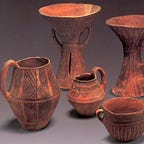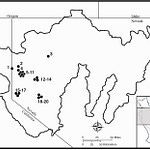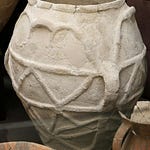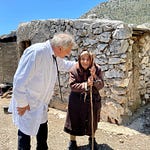Across much of the Mediterranean, the arrival of the horse is treated as a marker of change — a signal of new economies, rituals, and networks of power. But new analysis1 of pottery from a ritual complex at Polizzello, in central Sicily, suggests that horses were present, and eaten, far earlier than assumed.
Researchers led by Davide Tanasi at the University of South Florida, working with an international team of archaeologists and proteomics specialists, have identified equine proteins embedded in cooking and serving vessels dated to the early third millennium BCE. This pushes the island’s evidence for horse consumption back at least a thousand years.
“The proteomic analysis of the organic residues revealed a clear biomolecular signature of horse products in a substantial subset of the vessels,” Tanasi explained.











